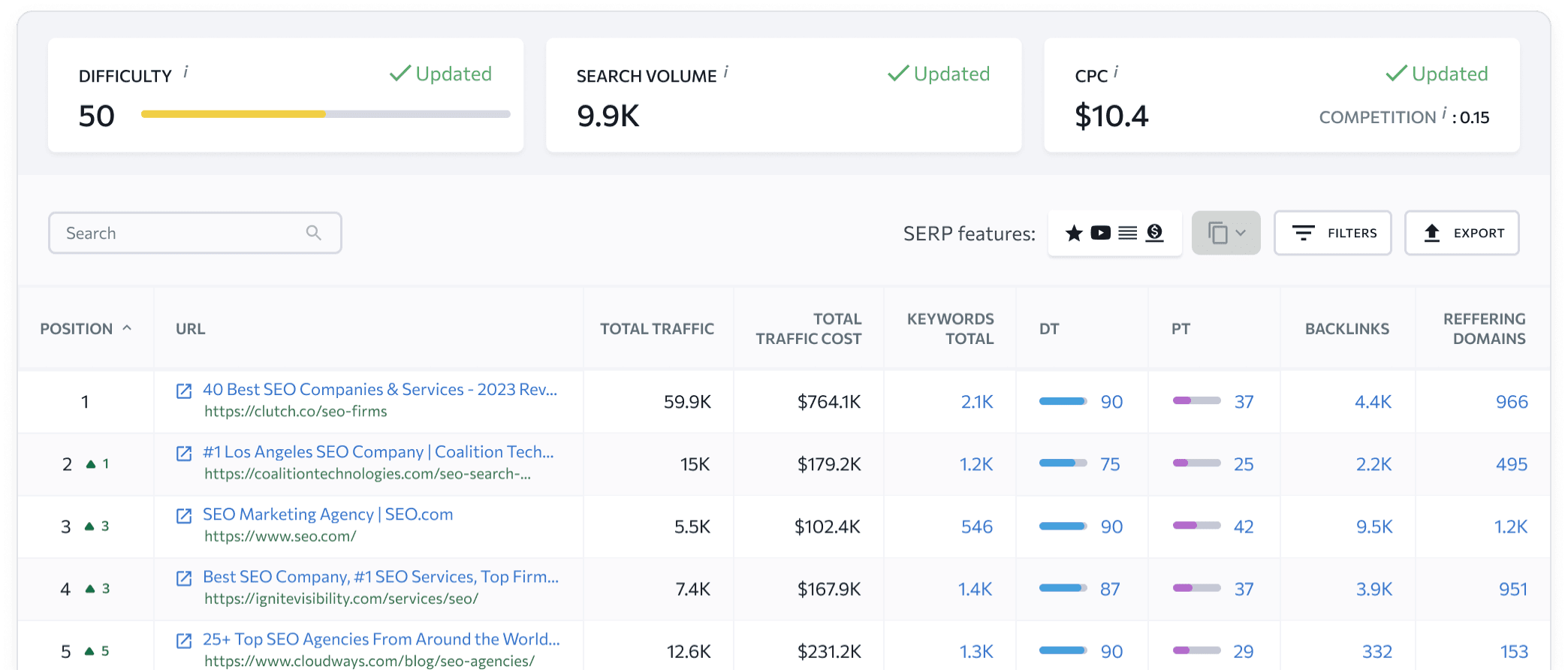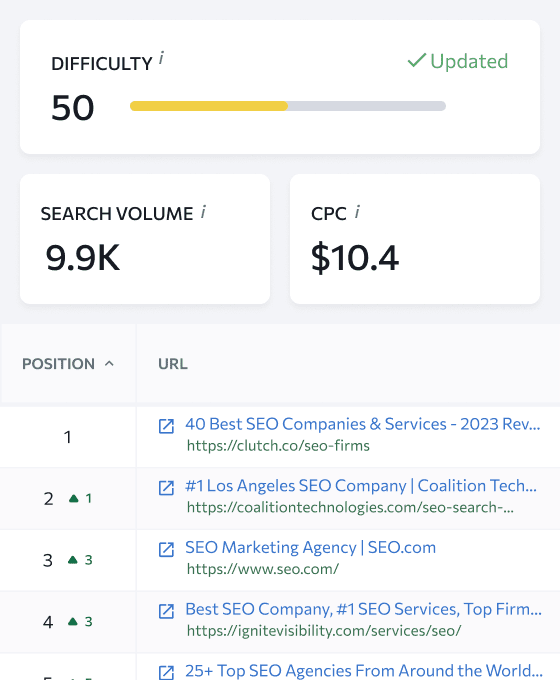Keyword difficulty checker
See how hard it is to rank for any keyword before optimizing for it

What is keyword difficulty?
Keyword difficulty is an important SEO metric. It shows how hard it will be to rank in the organic top10 for a specific keyword. It measures how strong the current top-ranking pages are for this keyword and helps you discern which keywords you do or don’t have a high chance of ranking for. The higher the score, the more optimizing you will have to do to rank for it.
What makes SE Ranking’s keyword difficulty checker tool special?









